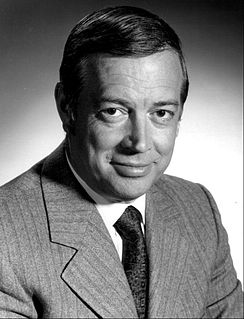A Quote by Daisaku Ikeda
Living here on Earth, we breathe the rhythms of a universe that extends infinitely above us. When resonant harmonies arise between this vast outer cosmos and the inner human cosmos, poetry is born.
Related Quotes
The story of the universe finally comes to an end. For the first time in its life, the universe will be permanent and unchanging. Entropy finally stops increasing because the cosmos cannot get any more disordered. Nothing happens, and it keeps not happening, forever. It's what's known as the heat-death of the universe. An era when the cosmos will remain vast and cold and desolate for the rest of time the arrow of time has simply ceased to exist. It's an inescapable fact of the universe written into the fundamental laws of physics, the entire cosmos will die.
The 7 Principles for Spontaneous Fulfillment of Desires 1. You are a ripple in the fabric of the cosmos 2. Through the mirror of relationships you discover your nonlocal self 3. Master your inner dialogue 4. Your intent weaves the tapestry of the universe 5. Harness your emotional turbulence 6. Celebrate the dance of the cosmos 7. Access the conspiracy of improbabilities Living synchrodestiny & spontaneous fulfillment of desires.
Now and again, it is necessary to seclude yourself among deep mountains and hidden valleys to restore your link to the source of life. Breathe in and let yourself soar to the ends of the universe; breathe out and bring the cosmos back inside. Next, breathe up all the fecundity and vibrancy of the earth. Finally, blend the breath of heaven and the breath of earth with your own, becoming the Breath of Life itself.
Each individual is a cosmos of organs, each organ is a cosmos of cells, each cell is a cosmos of infinitely small ones; and in this complex world, the well-being of the whole depends entirely on the sum of well-being enjoyed by each of the least microscopic particles of organized matter. A whole revolution is thus produced in the philosophy of life.
If the estimated age of the cosmos were shortened to seventy-two years, a human life would take about ten seconds. But look at time the other way. Each day is a minor eternity of over 86,000 seconds. During each second, the number of distinct molecular functions going on within the human body is comparable to the number of seconds in the estimated age of the cosmos. A few seconds are long enough for a revolutionary idea, a startling communication, a baby's conception, a wounding insult, a sudden death. Depending on how we think of them, our lives can be infinitely long or infinitely short.
Those afraid of the universe as it really is, those who pretend to nonexistent knowledge and envision a Cosmos centered on human beings will prefer the fleeting comforts of superstition. They avoid rather than confront the world. But those with the courage to explore the weave and structure of the Cosmos, even where it differs profoundly from their wishes and prejudices, will penetrate its deepest mysteries.
We've begun at last to wonder about our origins, star stuff contemplating the stars, organized collections of ten billion billion billion atoms contemplating the evolution of matter, tracing that long path by which it arrived at consciousness here on the planet Earth and perhaps throughout the cosmos. Our obligation to survive and flourish is owed not just to ourselves but also to that cosmos, ancient and vast, from which we spring.
Stars die and reborn […] They get so hot that the nuclei of the atoms fuse together deep within them to make the oxygen we breathe, the carbon in our muscles, the calcium in our bones, the iron in our blood. All was cooked in the fiery hearts of long vanished stars. … The cosmos is also within us. We're made of star stuff. We are a way for the cosmos to know itself.
Judaism calls for us to honor the rhythm of human life, the demands of the human community around us, the call of the divine order as the filter and scale for the decisions that drive our own small lives. We do not rule the universe, Judaism reminds us. God does. We are not its standard or its norms. We are only its keepers, its agents, its stewards. To do right by the universe at large is the measure of a happiness framed with the entire cosmos in mind but lived in microcosms across time.





































